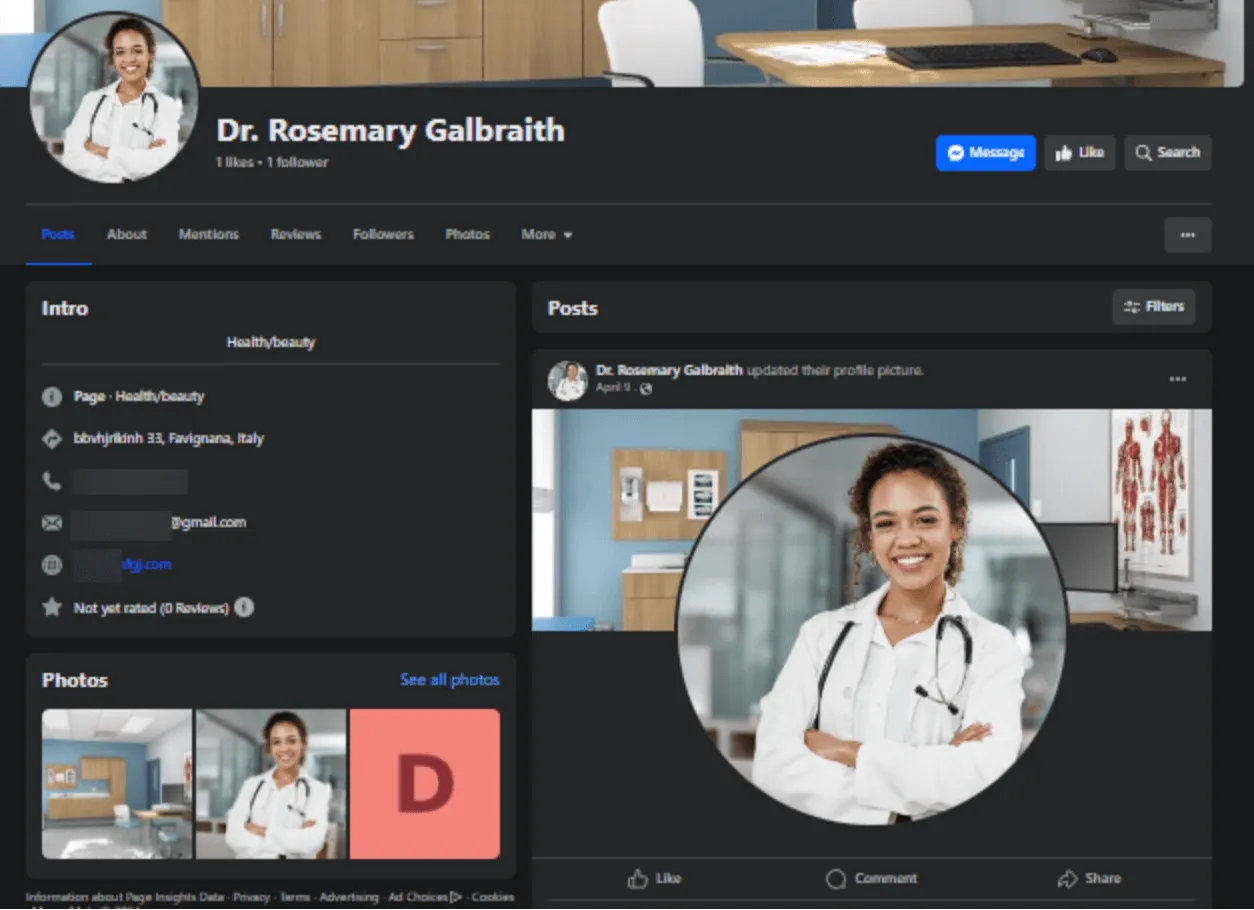Scammers harness AI and deepfakes to sell bogus ‘miracle cures’ on Meta platforms
Health-related scam campaigns powered by artificial intelligence and deepfake videos have been saturating Meta platforms and reaching millions of people worldwide, according to research released Wednesday.
The campaigns harness audio of celebrities to promote bogus “miracle cures” and feature cloned politicians, doctors and other healthcare experts.
The research from Bitdefender Labs — carried out from March to May — reveals the fake ad campaigns are tailored to resonate with specific age groups, genders and geographic regions. They include celebrities like Brad Pitt and Cristiano Ronaldo and promote phony medicines to treat diseases like cancer.
Researchers found the ads on the Meta-owned platforms Facebook, Messenger and Instagram.
Artificial intelligence allows the advertisers to not only tailor the bogus promotions, but also to pump them out to huge audiences. More than 350,000 people followed one fake page promoting the scam products, and the sweeping campaigns hit millions of people across four continents, according to the research.

A page impersonating a medical expert which pushed scam medical advertisements. Credit: Bitdefender
The campaigns take advantage of the rise of sponsored social media content on individuals’ Meta feeds, Bitdefender said. The researchers observed more than 1,000 deepfake videos featuring more than 40 fake medical supplements.
“Scams originating from phony ads on social media have increased dramatically, with potentially severe consequences for consumers,” the researchers said.
“While it may seem that the supplement scams just changed means of propagation, the fact that millions of people can be reached by paying modest sums is extremely alarming and needs urgent moderation,” they added.
Meta did not respond to a request for comment.
The criminals behind the ads created thousands of pages pushing the scams and tens of thousands of ads, Bitdefender said. The scam campaigns featured “catchy phrases designed to captivate and manipulate emotions [and] rush individuals into deciding on the spot with limited time offers and discounts,” according to the report.
Scammers also follow up by phone to push users to buy multiple products under the guise of ensuring the fake treatments work as intended.
Most of the ads take users to a website full of fake reviews, which the report said are likely produced by large language models.
The ads also include made-up studies to trick people and stoke bogus “conversation prompts” with alleged experts suggesting treatments are individually customized.
Most of the websites are “just poorly designed one-product e-shops,” but others clone specific countries’ most popular news sources. Some of the ads even made their way to real well-known media sites via paid articles, the report said.
The scale and adaptability of the scam campaigns pose a challenge for content moderation.
“If any of the pages involved get banned on any given platform, the actors will most likely have hundreds of others that can replace it,” the report said.
“Some pages even have thousands of likes, which indicate the fact that scammers might even use stolen pages bought from the dark web, ‘rebranding’ them so they vaguely resemble the topic in discussion.”
Suzanne Smalley
is a reporter covering digital privacy, surveillance technologies and cybersecurity policy for The Record. She was previously a cybersecurity reporter at CyberScoop. Earlier in her career Suzanne covered the Boston Police Department for the Boston Globe and two presidential campaign cycles for Newsweek. She lives in Washington with her husband and three children.



